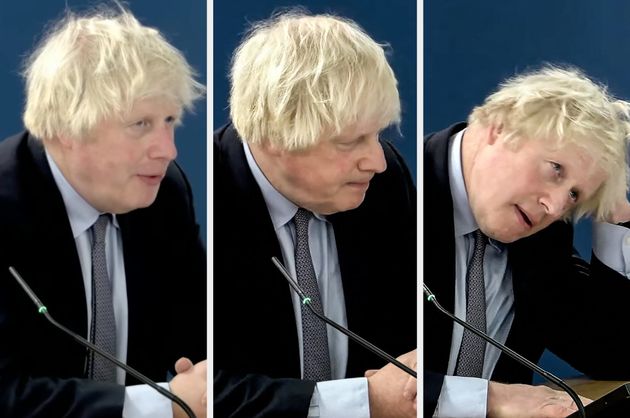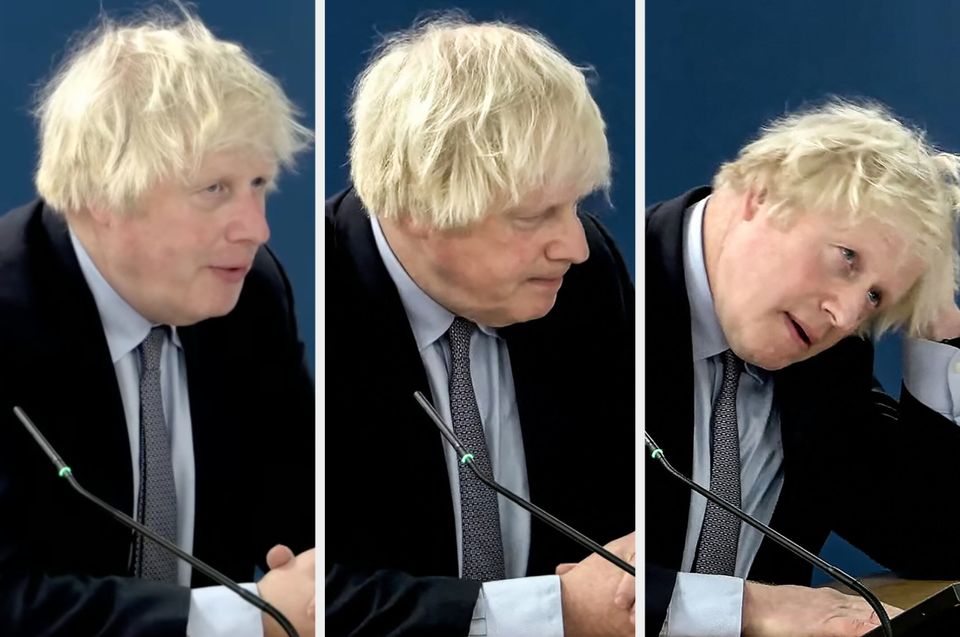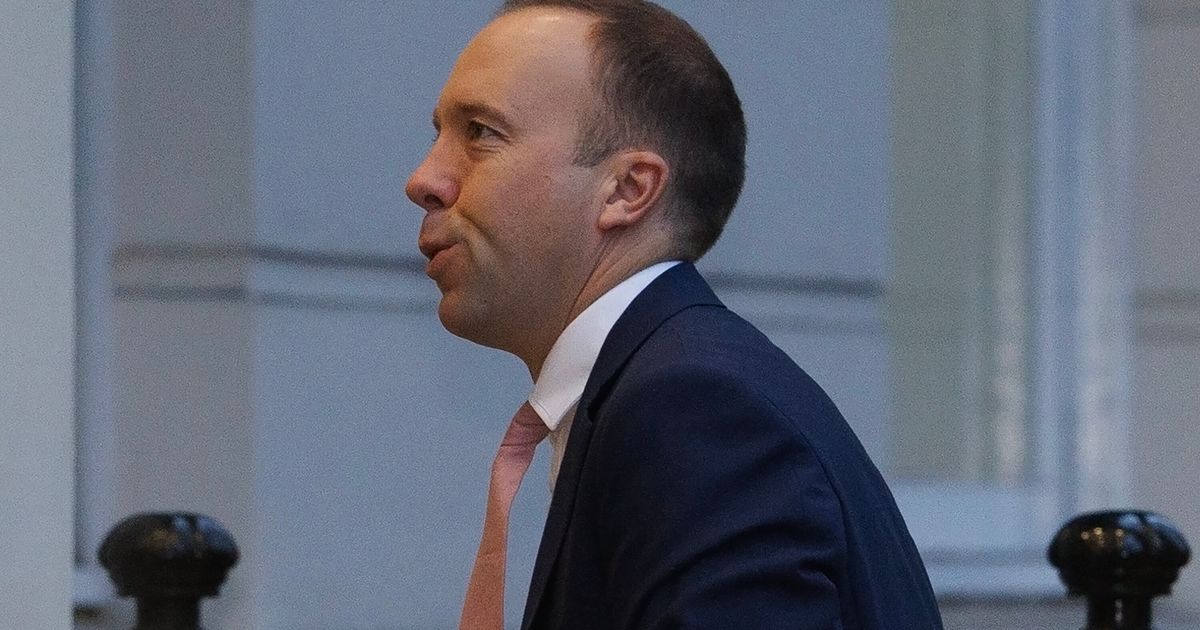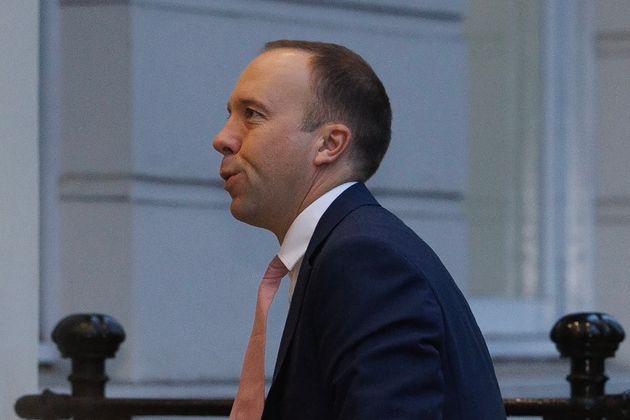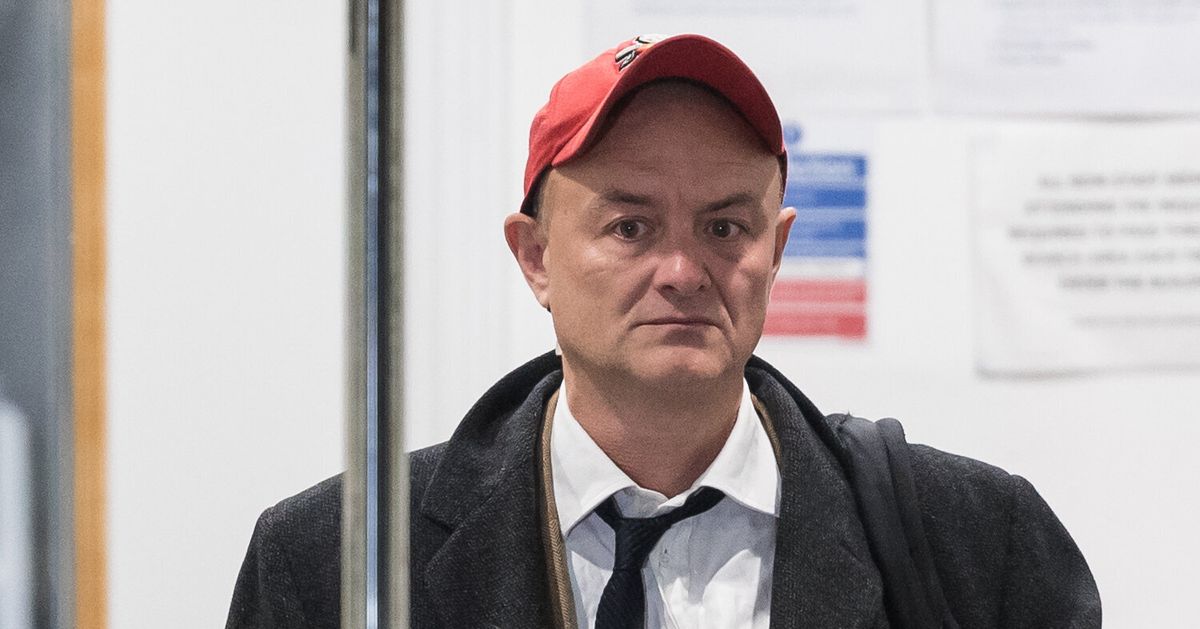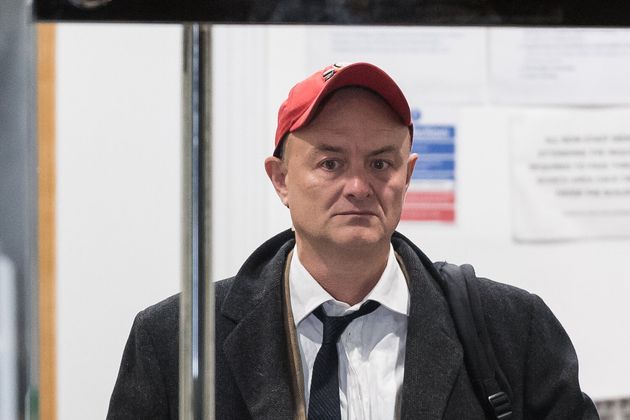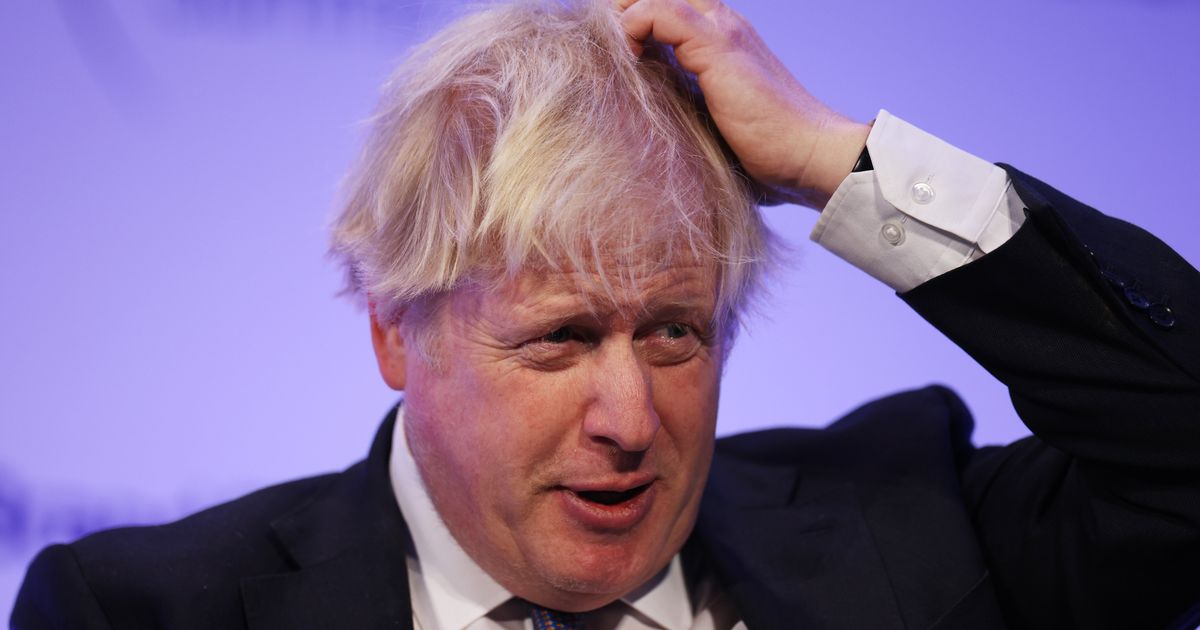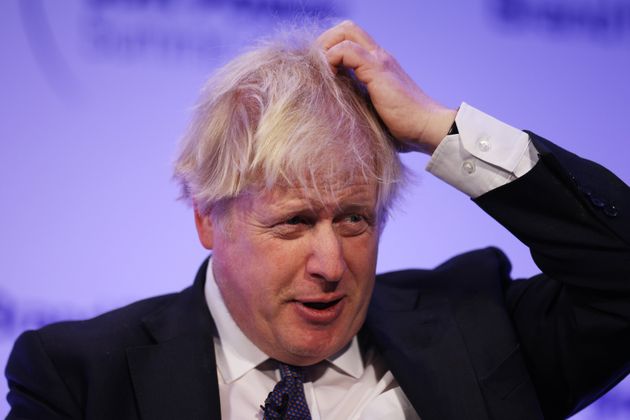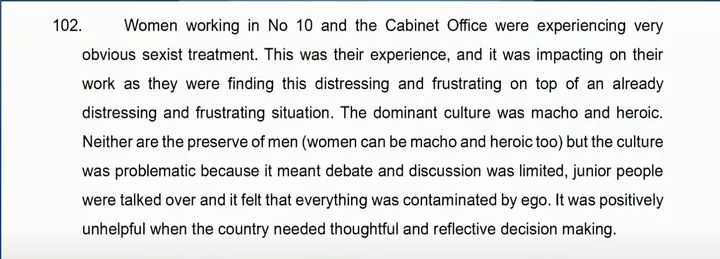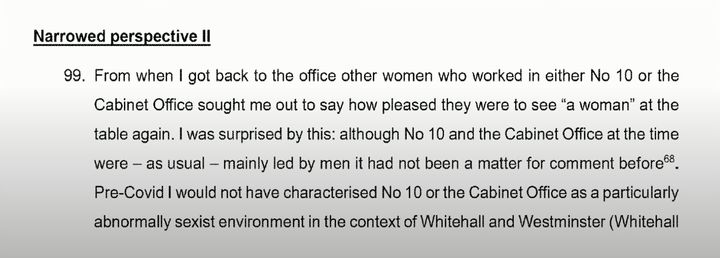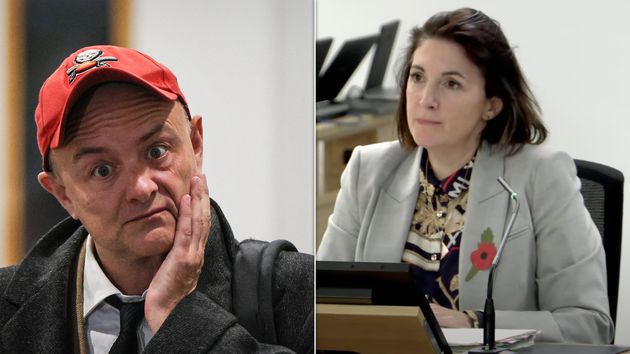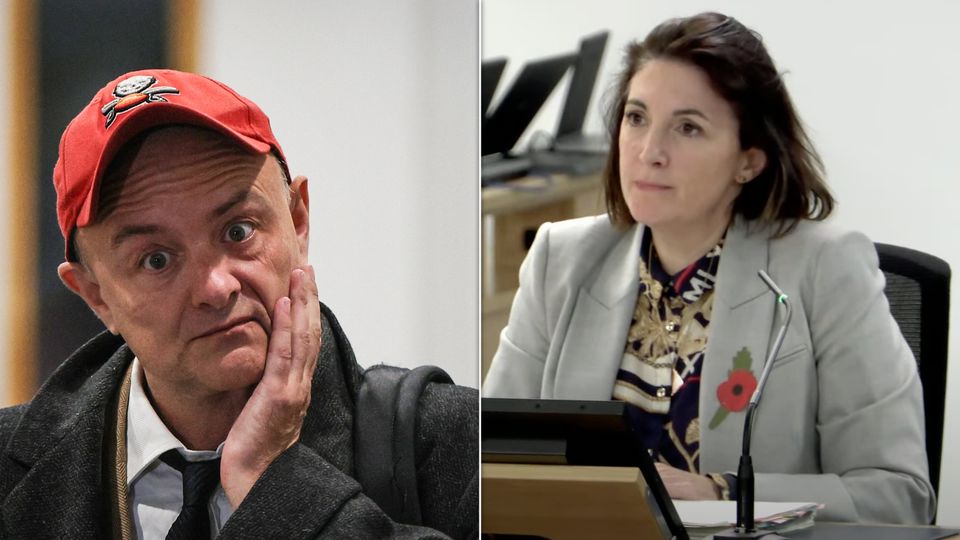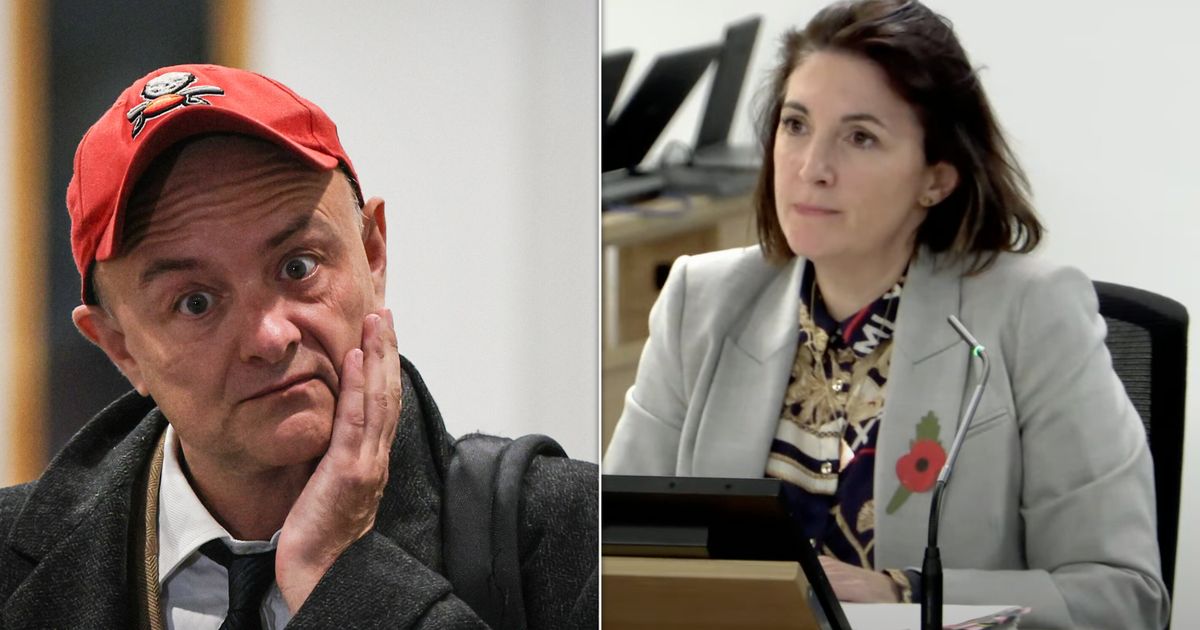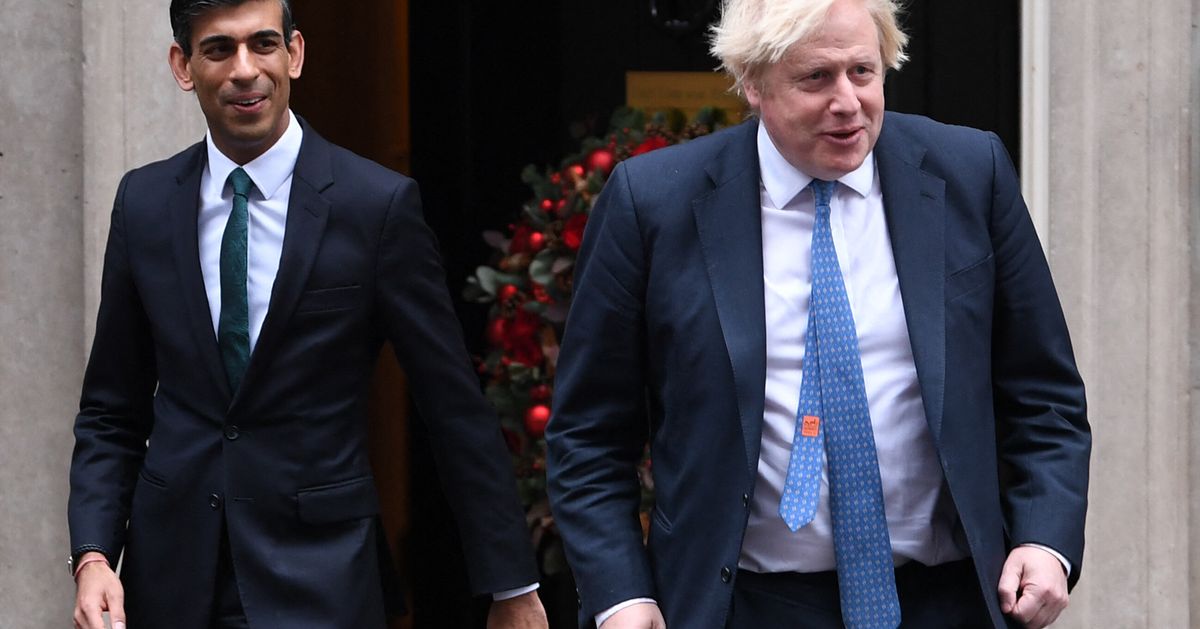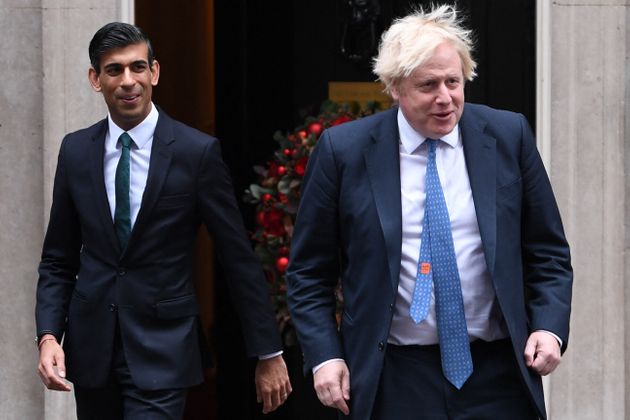Boris Johnson has been giving evidence to the public Covid Inquiry all day.
This is just the first of two days in which he will be grilled over the government’s handling of the pandemic, and there was plenty of back-and-forth between the former prime minister and the counsel to the inquiry Hugo Keith KC.
So here’s a list of the core exchanges from the first day.
1. He began with an apology – but was interrupted by protests
“Can I just say how glad I am to be at this inquiry and how sorry I am for the pain and the loss and the suffering of the Covid victims,” Johnson said when he started to give evidence.
Advertisement
Four people started to protest and held up a sign which said “the dead can’t hear your apologies”. They were removed.
Johnson also said he took “personal responsibility for all decisions made”.
The Inquiry chair, Lady Hallett, also kicked off proceedings by warning Johnson about the leaks to the media, saying: “Failing to respect confidentiality undermines the inquiry’s ability to do its job fairly, effectively and independently.”
2. Johnson couldn’t explain what happened to WhatsApps from his old phone
Amid a furore that the inquiry did not have all the necessary evidence because one of the ex-PM’s phones could not be accessed, Johnson said he was not responsible for any of the apparent technical issues.
“I haven’t removed WhatsApps from my phone. I want to make that clear. I have given everything you need,” he said.
Advertisement
3 ‘Not sure’ if government decisions led to more Covid deaths
In his witness statement, the ex-PM wrote: “We – I – unquestionably made mistakes, and for those I unreservedly apologise.”
However, when pressed by Keith, Johnson did not say what mistakes he was referring to – he just admitted that, with hindsight, it was clear they needed to do things differently.
Asked if he thought government-decision making led “materially to more excess deaths than might otherwise have been the case”, he said: “I’m not sure.”
He did admit concerns about mixed messages from the devolved governments, though. He later said “the collaboration was excellent” but communication could end up being “confusing”.
4. Johnson challenged the claim the UK had the second highest number of deaths in Europe
Johnson claimed the UK was “16th out of 33 countries for excess deaths” in Europe.
However, the QC said the UK had one of the worst records for excess deaths among western European countries.
Advertisement
Johnson also blamed other factors, like the “extremely elderly population”, and the population density of the UK.
5. Cabinet ‘more reluctant’ to impose lockdown
The ex-PM said his colleagues were “more reluctant” than he was to impose lockdown-type measures.
He said: “I think it would be fair to say that the cabinet was on the whole more reluctant to impose NPIs (non-pharmaceutical interventions) than I was.”
6. Johnson admitted he read Sage meetings minutes ‘once or twice’
The PM was criticised at the start of pandemic for missing Sage – Scientific Advisory Group for Emergencies – at the beginning of 2020.
He said in retrospect it may have been “valuable to try to hear the Sage conversation”, but he was reliant on the chief medical officer for England, professor Chris Whitty and the former chief scientific adviser Sir Patrick Vallance who are “outstanding experts in their field”.
7. He did not want to sack Hancock
He defended the former health secretary Matt Hancock, who has been heavily criticised for his handling of the pandemic throughout the course of the inquiry.
Advertisement
His former chief adviser Dominic Cummings told the inquiry he had encouraging Johnson to sack Hancock, the ex-PM said: “If you’re a prime minister, you are constantly being lobbied by somebody to sack somebody else.”
He added that Cummings “had a low opinion of the health secretary”, but Johnson said: “I thought he was wrong.”
Johnson also said he does not accept Hancock was excluded from some key meetings, but said he needed to discuss some costly elements of the lockdowns with the Treasury.
Later, he expressed frustration – and rolled his eyes – at the idea in Cummings’ witness statement that he kept Hancock in cabinet as a sacrifice for the inquiry.
“I don’t remember that at all, it’s nonsense,” Johnson said, saying he thought Hancock was a good public communicator “whatever his defects”.
Advertisement
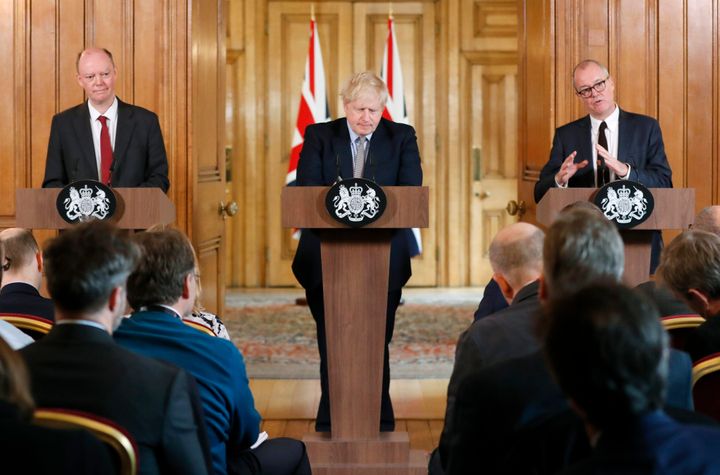
via Associated Press
8. Johnson disputed claims about toxic culture
Former senior civil servant Helen MacNamara told the inquiry Johnson oversaw a “toxic culture” in No.10, while top civil servant Simon Case that the top team were “basically feral”.
But the ex-PM told the inquiry that actually it was just “a lot of highly talented, highly motivated people who are stricken with anxiety” who under pressure “will be inclined to be critical of others”.
But he said it would have been worse if everyone was “so deferential” they never expressed their opinion.
9. ‘Too many meetings were too male-dominated’
MacNamara claimed there was an “obvious, sexist treatment” of women in No.10.
Johnson said: “I think that the gender balance of my team should have been better.
“I think sometimes during the pandemic, too many meetings were too male-dominated if I’m absolutely honest with you.”
Advertisement
He later said he had apologised to MacNamara after messages, sent to him describing her as a “c***”, were published in the inquiry.
10. Johnson said his senior aides chose to ‘step aside’
Johnson said his cabinet secretary Mark Sedwill and chief adviser Dominic Cummings both decided to step aside, rather than a sign he lost confidence in them.
When pressed over his relationships with them, he refused to be drawn and just said they chose to leave, saying it was “very difficult, very challenging period”.
11. Johnson responded to claims he was slow to respond to Covid
The ex-PM said the possibility of such a virus was not something that had really “broken upon the political world”, and he was not asked about it at PMQs – but noted he did become anxious about it by the end of February.
Advertisement
He added: “It was not escalated to me as an issue of national concern until much later.”
Acknowledging some predictions he saw about the potential Covid deaths in early 2020, he said: “I don’t think we attached enough credence to those forecasts.”
He claimed it was a “cloud on the horizon no bigger than a man’s hand”.
He said he could not remember expressing scepticism about the possible number of deaths.
12. Blamed a lack of communication from scientific teams
“The scientific community within Whitehall at that stage was not telling us that this was something that was going to require urgent and immediate action,” Johnson claimed.
He said he knew Covid had a 2% fatality rate, but claimed “fallacious, inductive logic” meant they did not take warnings seriously.
13. Johnson admitted that deaths in Italy ‘rattled me’
The ex-PM noted Italy had an elderly population, much like the UK, and so its 8% fatality rate “really rattled me”.
He said: “We should have twigged, we should collectively have twigged, much sooner. I should have twigged [by late February].”
Advertisement
14. Johnson seemed emotional when remembering decisions around lockdown
Weighing up lockdown and behavioural fatigue, Johnson said he was anxious about locking down too early without a vaccination programme.
“We have to be realistic about 2020 – the whole year – that whole tragic, tragic year,” Johnson said, before taking a moment to compose himself.
He then pointed out “we did lock down – and then it bounced back.”
15. Johnson defended his work ethic
He claimed he does not accept suggestions he was doing nothing in the months before lockdown, saying he was working and having calls with Presidents Xi and Trump.
The QC replied that he was actually not suggesting Johnson was on holiday, he was just reiterating Cummings’ allegations.
16. Johnson said he did not consider ignoring any advice about lockdown
He said the view that interventions should to be imposed too early was “the prevailing view for a long time” and shared by lots of people – and so he would not have gone into lockdown earlier.
Advertisement
Suggesting it was hard to know how to respond, he said: “When you hear about an Asian pandemic that is about to sweep the world, you think you’ve heard it before and that was the problem.”
He did not consider overruling the chief medical officer – and Keith then asked if he understood Sage could not tell him what to do.
Over accusations that he showed a lack of leadership by changing direction, he said: “Of course we were changing but so did the collective understanding of the science.”
17. He expressed regret about shaking hands
Johnson told the media he went to a hospital and shook hands with several Covid patients at the very early stages of the pandemic.
“I do think I shouldn’t have done that in retrospect,” Johnson replied.
“I should have been more precautionary, but I wanted to be encouraging to people.”
The clip in question from March 2020 below:
Advertisement
18. Johnson acknowledged sports events should have been cancelled
The ex-PM said they should have stopped mass sporting events in early March – Johnson attended an England v Wales game at Twickenham.
“With hindsight, as a symbol of the government’s earnestness rather than being guided by the science, we should perhaps have done this,” he said.
But he added, “At every stage I was weighing massive costs,” and “what the government was going to do was “very destructive for a lot of people least able to bear the costs”.
19. He addressed thinking behind herd immunity
Johnson said trying to flatten the curve of infections, – which he claimed led some people to assume the government were “trying to allow this thing to pass through the population unchecked”.
However he said this would have been a “by-product” of tackling the virus.
20. Johnson was ‘bewildered’ by possible impact of intervention
Presented with a graph showing the possible impact of interventions on the NHS, he said: “I was bewildered, to be honest.”
Advertisement
With or without restrictions, he said: “In either case, we are facing an absolutely intolerable situation.”
21. One heated moment over his lockdown
Johnson rejected claims he could not make up his mind about the lockdown – which came into effect on March 23, 2020 – but said the chancellor told him it would pose a risk to bond markets so he had to make a careful decision.
“It would have been totally negligent not to have had such a conversation,” Johnson said: “I’d made up my mind – we [were] getting on and doing it, we [were] not being diverted.”
He said, “I had no other tool – literally nothing else” aside from lockdown, and he “couldn’t take the gamble with public health”.
22. Johnson stood by lockdown
He said: “I believe that it was absolutely necessary” and “helped to suppress the R-rate”.
He also cast doubt on the view that the need for a mandatory stay at home order could have been avoided if the government acted sooner – but accepted Sage lacked enough clarify on data.
Advertisement
23. Johnson said he should have spent more time with the devolved administrations
Despite saying in his witness statement that he thought it was wrong for the PM to hold meetings with the first ministers, and compared it to being a “mini EU”, Johnson said they need to get a “better way of getting a unified message”.
“Some form of integrated decision-making which does not leak is what you’re after,” he said.
24. Johnson expressed regret for saying long Covid was ‘bollocks’
The ex-PM admitted that he had written in notes about long Covid describing it as “bollocks” and “gulf war syndrome stuff” – an illness which rocked veterans from the 1991 war, but no single cause was ever identified.
He said these phrases may have caused “hunt and offence to huge numbers of people who have that syndrome”, and “I regret it very very much.”
25. Johnson defended ‘argumentative’ culture in No.10
Johnson’s administration has been repeatedly slammed for “misogyny”, “leadership issues”
The ex-PM said he wanted a No.10 where ideas can be challenged, and he said: “It was occasionally argumentative, but that was no bad thing.”
Advertisement
He also said the country required “continuous, urgent action”, and claimed he spoke bluntly sometimes “because I wanted to give people cover to do the same”.
He also said the PM should go into meetings when decisions are being made – but that was not happening.

